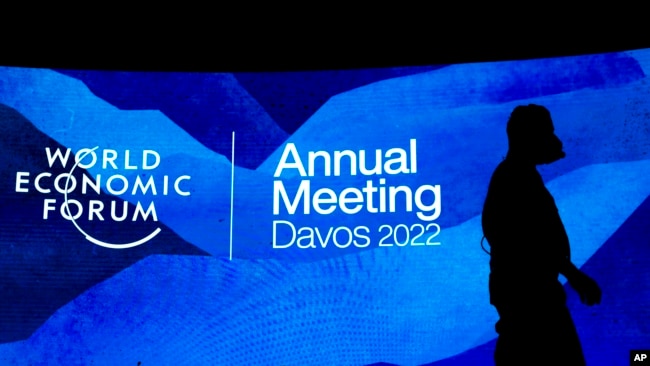衝撃的な報告でした!!!
世界が男女平等に到達するまでに132年!!
男女平等な国ランキング:日本は116位で、G7主要先進国中最下位。
声高に、世界に知られてしまいました💦
やっぱり、移住先はニュージーランド!!!!!!
VOAで英語を学びましょう!!
報告書: 物価上昇の影響を最も受けるのは女性(和訳)
Report: Rising Prices Affect Women the Most
July 18,2022
スイスのジュネーブに本拠を置く研究機関が、物価の上昇は男性よりも女性に影響を与える可能性が高いと警告しています。
世界経済フォーラムは水曜日、世界の女性と男性の経済状況について報告書を発表しました。
同団体は、インフレが世界の労働力における男女間の差、いわゆるギャップを拡大させる可能性があると警告しています。
世界経済フォーラムは、スイスの町ダボスで毎年、ビジネス、文化、政治の有名なリーダーが集まることで知られています。過去16年間、同団体は世界の男女平等を測定することを目的としたGlobal Gender Gap Reportを執筆してきました。
同グループによると、COVID-19の健康危機が緩和されれば、男女格差は小さくなり始めるという期待がありました。現在、経済的なショックで格差はさらに悪化する恐れがあると言います。
フォーラムは、世界が男女平等に到達するまでに132年かかると見積もっています。これは、昨年の報告書で見積もられた136年よりも短縮されています。
同団体は、4つの主要分野:賃金と経済的機会、教育、健康、政治的エンパワーメントの男女差を研究しています。
同団体は146カ国を調査し、ジェンダーの質の4つの分野でそれぞれの国を評価しました。その結果、アイスランドが世界で最も男女平等な国であると評価され、フィンランド、ノルウェー、ニュージーランドがそれに続きました。ルワンダ、ニカラグア、ナミビアも高く評価されました。ヨーロッパ最大の経済大国であるドイツは10位でした。さらに下位には、世界最大の経済大国が並んでいます。米国は27位、中国は102位、日本は116位で、G7主要先進国中最下位でした。
サーディア・ザヒディ氏は、世界経済フォーラムの幹部です。彼女は、インフレによる危機の影響を女性が不当に受けていると指摘しました。特に女性は、パンデミック時の失業や、彼女が言うところの”ケアインフラ”—お年寄りや子供のためのケアサービスなど、の欠如によって傷ついている、とザヒディ氏は言います。
「弱い回復に直面して、政府と企業は、2つのセットで努力する必要があります:女性の職場復帰を支援するためのターゲット政策と、将来の産業における女性の人材育成です。」と彼女は言います
「そうでなければ、過去数十年の成果を永久に侵食し、多様性がもたらす将来の経済的リターンを失う危険性があります。」とザヒディ氏は述べています。
Report: Rising Prices Affect Women the Most
A research organization based in Geneva, Switzerland warns that rising prices are likely to affect women more than men.
The World Economic Forum released a report Wednesday on the economic conditions of women and men around the world.
The group warns that inflation could increase the difference, what is called the gap, between men and women in the world’s labor force.
The World Economic Forum is best known for holding a yearly gathering of famous business, cultural and political leaders in the Swiss town of Davos. For the past 16 years, the group has written the Global Gender Gap Report that aims to measure gender equality around the world.
The group said there were hopes that the gender gap would begin to become smaller as the COVID-19 health crisis eased. Now, economic shocks threaten to make the gap worse, it said.
The forum estimates that it will take 132 years for the world to reach gender equality. That is down from the 136 years estimated in last year’s report.
The organization studies gender differences in four main areas: pay and economic opportunity, education, health, and political empowerment.
The group studied 146 countries, rating each one in the four areas of gender quality. It rated Iceland as the most gender-equal country in the world, followed by Finland, Norway and New Zealand. Rwanda, Nicaragua and Namibia were also highly ranked. Germany, Europe’s biggest economy, came in 10th place. Further down the list were the world's biggest economies. The United States was 27th, China was 102nd and Japan was 116th, last among G7 major industrialized nations.
Saadia Zahidi is a top official with the World Economic Forum. She said women have been disproportionately affected by the crisis caused by inflation. Women were especially hurt by job losses during the pandemic and a lack of, what she called, “care infrastructure” — such as care services for old people or children, Zahidi said.
“In face of a weak recovery, government and business must make two sets of efforts: targeted policies to support women’s return to the workforce and women’s talent development in the industries of the future,” she said.
“Otherwise, we risk eroding the gains of the last decades permanently and losing out on the future economic returns of diversity,” Zahidi said.
Words in This Story
gender — n. the state of having female and male sexes
opportunity — n. a chance or situation in which something can be done
disproportionately — adv. showing a difference this either not fair, not reasoned or unexpected
talent — n. a special ability that allows someone to do something well
erode — v. to gradually destroy
diversity — n. the quality or state of having many different forms, kinds or examples of something
